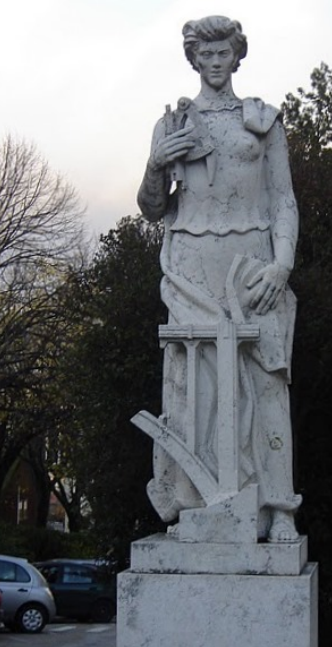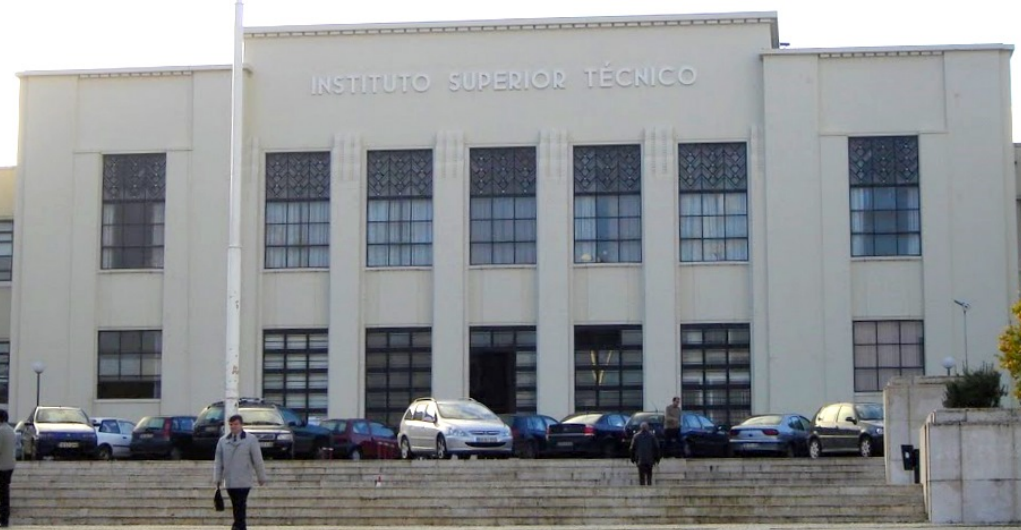Instituto Superior Técnico (IST, also known as TECNICO LISBOA) is a public school of engineering and technology , part of Universidade de Lisboa (University of Lisbon). Founded in 1911, IST is the largest and most prestigious school of engineering in Portugal, having a large degree of scientific and financial autonomy. Its alumni have held prominent positions in both the private and public sectors of Portuguese society, having produced numerous CEOs, government ministers, 2 Prime Ministers of Portugal, and 1 Secretary-General of the United Nations.
Some Rankings: Instituto Superior Técnico - World's TOP 50 Eng Univ 2018
Instituto Superior Técnico. World's 8th Best Civil Eng Univ 2017
IST, since its foundation, has been the largest school of engineering, science and technology in Portugal, at undergraduate and postgraduate levels. It has three campi, all located in the Greater Lisbon area (Alameda in Lisbon, Taguspark in Oeiras and Tecnológico e Nuclear Campus in Loures), and consists of ten Departments that are responsible for teaching the undergraduate and postgraduate programmes. Each Department is organised in sections, which group together specific subjects within its scientific area. In addition, the laboratories of the several Departments are an important source of support to the teaching and research activities carried out at IST. IST offers 18 undergraduate programmes attended by more than 6,000 students, covering a wide range of areas of knowledge, including not only all the traditional engineering specializations, but also other modern areas such as Biomedical Engineering, Aerospace and Physics Engineering. Over 4,500 students are enrolled in 33 masters, 31 doctoral and several specialized programmes. IST has produced 1,292 Ph.D. holders. IST is also actively involved in several networks and international programmes to promote student mobility, both at undergraduate and postgraduate levels. Through a large number of agreements with other institutions worldwide, IST participates in more than 20 Dual Master programmes, and joint PhD programmes with MIT, CMU, UT-Austin and EPFL. IST benefits from an IBM supercomputer built in 2007, which is one of the most powerful in Portugal (1.6 TFLOPS as of 2007).
- traditional engineering
- mobility
- science and technology
1. History

Instituto Superior Técnico (IST) was created in 1911 from the division of the Industrial and Commercial Institute of Lisbon. Alfredo Bensaúde, an engineer, was IST's first dean (1911–1922) and promoted a wide-rang reform in the Portuguese higher technical education, including the first engineering courses at IST: mining, civil, mechanical, electrical, and chemical-industrial. IST's second dean was Duarte Pacheco (1927–1932), also an engineer, who was responsible for the construction of the university campus at Alameda. The architect Porfírio Pardal Monteiro designed it. Meanwhile, IST became part of the recently created Technical University of Lisbon. Throughout the following decade, the image of engineers from IST was projected into major engineering works, promoted by Duarte Pacheco, who was by the time Minister of Public Works.
Between 1952 and 1972, 12 study centres were established in Portugal, three of them at IST, in the fields of chemistry, geology and mineralogy, and electronics. These centres were responsible for promoting faculty training and scientific qualification through doctoral studies in universities and research centres abroad. In 1970, the minimum period for obtaining a bachelor's degree decreased from six to five years, and IST denoted a remarkable increase of the number of students. During this period, scientific research at IST increased significantly, through the creation of the Complexo Interdisciplinar which fasten together various autonomous research units, and contributes to transform IST in a reference school at European level[according to whom?].
In the 1990s, new courses were created in cutting-edge engineering areas, including master and doctoral programmes. In 2001, IST inaugurated a new campus in the municipality of Oeiras, located in Taguspark, the first Portuguese science and technology park, which is home for more than 120 technology-based companies. In the academic year of 2006-2007, the Declaration of Bologna was successfully implemented for all IST programmes, aiming the establishment of a European Education Area to make Europe a competitive knowledge-based economy.
Today's IST is generally recognised as Portugal's leading engineering school. IST is involved with some of Portugal's most prestigious R&D&I and technology transfer institutions. A vast number of courses in cutting-edge engineering areas, at undergraduate, master and doctoral levels, are nowadays offered at IST. IST is also actively involved in several networks and international programmes to promote student mobility, both at undergraduate and postgraduate levels. Through a large number of agreements with other institutions worldwide, IST participates in more than 20 Dual Master programmes, and joint PhD programmes with MIT, CMU, UT-Austin and EPFL.
2. Programs of Study

IST offers undergraduate and graduate studies in:
- Aerospace Engineering
- Applied Mathematics and Computation
- Architecture
- Biological Engineering
- Biomedical Engineering
- Chemical Engineering
- Civil Engineering
- Telecommunications and Information Networks Engineering
- Electrical and Computer Engineering
- Electronics Engineering
- Environmental Engineering
- Geological and Mining Engineering
- Industrial Engineering and Management
- Information Systems and Computer Engineering
- Materials Engineering
- Mechanical Engineering
- Naval Architecture and Marine Engineering
- Physics Engineering
3. Affiliations
- Instituto Superior Técnico is a member of TIME association (Top Industrial Managers for Europe) for researchers and student exchanges and double-degree in Europe. T.I.M.E. Coordinator is Prof. José Santos-Victor.
- It also belongs to CLUSTER (Consortium Linking Universities of Science and Technology for Education and Research), which is a network of leading European Universities of Technology; their fundamental missions are advanced research and higher education of engineers, scientists and architects.[1]
- IST is also a member of the Conference of European Schools for Advanced Engineering Education and Research (CESAER), a non-profit association of leading engineering universities in Europe and of Partnership of a European Group of Aeronautics and Space Universities (PEGASUS).
4. Locations
Since 2011 IST has three campuses:
- Alameda campus, located in the heart of Lisbon.
- Taguspark campus, located in Oeiras.
- IST Tecnológico e Nuclear campus, located in Loures.
5. Notable Alumni
- Alfredo Nobre da Costa, Prime Minister of Portugal (1978), Minister for Industry and Technology (1975–76)
- Alberto Romão Dias, former State Secretary for Higher Education, university professor, chemical-industrial engineering (1964-2007)
- Ângelo Correia, politician and business administrator, chemical-industrial engineering (1968)
- António Câmara, founder and CEO of YDreams, Prémio Pessoa winner, researcher and professor at the Faculdade de Ciências e Tecnologia da Universidade Nova de Lisboa, civil engineering
- António Guterres, former Prime Minister of Portugal; former president of the Socialist International and former United Nations High Commissioner for Refugees; now Secretary-General of the United Nations, electrical engineering (1971)
- Artur Agostinho, sports news, radio and television personality, actor, television presenter, electrical engineering (did not graduate)
- Diamantino Durão, Minister of Education 1991-1992; IST President between 1984 and 2000; Rector of Universidade Lusiada.
- Jaime Jorge, founder of Codacy in 2012.
- João J. R. Fraústo da Silva, former Minister for Education (1982–83)
- João de Deus Pinheiro, politician, Minister of Education, Minister of Foreign Affairs, Member of the European Parliament, European Commissioner, rector, university professor, chemical-industrial engineering (1970)
- João Paulo Girbal, CEO of Microsoft Portugal (2001-2006)
- João Pavão Martins, founder of SISCOG, full professor of Computer Science and Engineering at IST, mechanical engineering (1976) (later got a master's degree in computer science and a PhD in Artificial intelligence from State University of New York at Buffalo).
- José Manuel Bento dos Santos, businessman, trader, metals broker, cook, gastronomer, chemical-industrial engineering.
- José Manuel Tribolet, full professor of Information Systems, PhD from MIT, co-founder and chairman of INESC-ID, electrical engineering (1971).
- Luis Veiga da Cunha, Minister for Education (1979–80)
- Manuela M. Veloso, researcher in robotics, professor at Carnegie Mellon University
- Maria de Lurdes Pintasilgo, first woman to serve as Prime Minister of Portugal, chemical-industrial engineering (1953)
- Mariano Gago, Minister for Science, Technology and Higher Education, electrical engineering (1960)
- Mário Crespo, television presenter, reporter, journalist (did not graduate)
- Nuno Maulide, full professor of organic chemistry at the University of Vienna at the age of 33 (2013)
- Pedro Domingos, researcher in machine learning, professor at University of Washington, author of The Master Algorithm
- Pepetela, Angolan writer, sociology professor (did not graduate)
- Paulo Branco, film producer and distributor, chemical engineering (did not graduate)
- Raul Pires Ferreira Chaves, inventor, former Director of Public Works in Cape Verde and Portuguese Guinea, former president of Associação Industrial, Comercial e Agrícola da Guiné
- Stephan Morais, first Portuguese to be nominated a Young Global Leader by the World Economic Forum, civil engineering (1996).
- Vasco Joaquim Rocha Vieira, General and Governor of Macao, civil engineering
The content is sourced from: https://handwiki.org/wiki/Organization:Instituto_Superior_T%C3%A9cnico
References
- http://www.cluster.org
